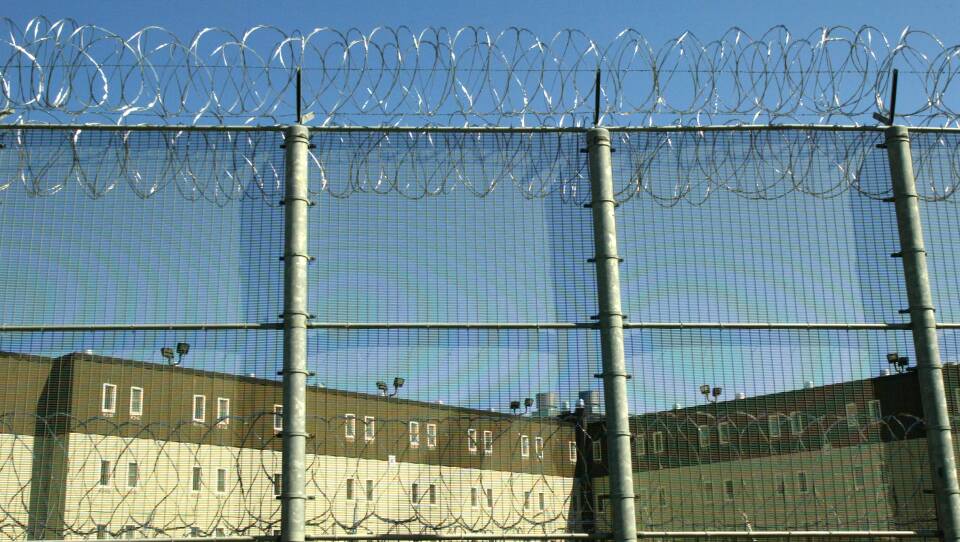A federal judge rejected a bid by the state prison guard union to temporarily block Governor Charlie Baker’s vaccine mandate from going into effect on Sunday.
U.S. District Judge Timothy Hillman said the public health concerns around coronavirus outweigh the concerns that four members of the Massachusetts Correction Officers Federated Union (MCOFU) spelled out in their lawsuit.
These were namely that their constitutional and contract rights were being targeted by Baker's August executive order that says employees who don’t get the COVID-19 vaccine by Sunday, Oct. 17 could face punishment and termination from their jobs.
“Even considering the economic impact on the Plaintiffs if they choose not to be vaccinated, when balancing that harm against the legitimate and critical public interest in preventing the spread of COVID-19 by increasing the vaccination rate, particularly in congregate facilities, the Court finds the balance weighs in favor of the broader public interests,” said Hillman in his decision, which denied granting a temporary ban on the mandate.
The Friday afternoon decision increases the likelihood that the Massachusetts National Guard will have to fill in for officers who have not been vaccinated. Baker activated the Guard preemptively on Oct. 12 to temporary work as prison guards in the event of a staffing shortage.
Hillman said the governor’s executive order requiring vaccination is a condition of employment, not a provision of the union’s contract, which means it doesn’t undermine collective bargaining rights and is instead a mechanism to maintain a safe work environment. He called the order “a reasonable and appropriate way to advance the significant goal of stopping the spread of COVID-19 in the state prison system.”
MCOFU is also pursuing a claim with the Commonwealth’s Department of Labor Relations against the order.
Hillman dismissed the constitutional claims, citing a 1905 Supreme Court decision that agreed residents must be vaccinated for smallpox or face a fine. The court said then that states have the authority to enact public health laws.
“The Supreme Court has rejected the idea of a fundamental right to refuse vaccination,” Hillman noted in the decision.
He also said that while guards could suffer harm by losing their jobs, the loss of employment isn’t considered impossible to fix for the purposes of a temporary ban on the mandate.
Hillman also said that while the union said their claims were supported by the fact that inmates in the state prison system are not required to be vaccinated, they also said correctional officers have the potential to spread COVID-19 into their own communities, as they “spend the vast majority of their work days in the presence of inmates … and also have families and participate in activities outside of their work that bring them into contact with” the public.
"The MCOFU request to avoid Governor Baker’s vaccine mandate has been denied," said Michael Horrell, staff attorney for Prisoners' Legal Services, which filed a brief in the case. "Now the question is whether the 1,400+ unvaccinated COs will comply or if DOC will use staff shortages as an excuse to impose more harsh lockdowns instead of decarcerating."
Less than half of correction officers are vaccinated, according to an Oct. 6 letter from the union, but the union’s attorney claimed in Zoom court Thursday that the figure is roughly 75-80 percent. The Department of Correction did not reply to requests for clarification.
Twenty-one Department of Correction prisoners have died of coronavirus since the pandemic began, not including two men who were released on medical parole just before their deaths last winter.
This is not the first legal go around for Baker's vaccine mandate. The tate troopers association filed a lawsuit in state court last month claiming the mandate was primarily a bargaining issue but failed to get an injunction, with the judge ruling that bargaining rights over working conditions did not outweigh the public interest of getting people vaccinated.
Plaintiffs Michael Mosher, Zac Gustafson, Denina Dunn and Angela Pucci said in their complaint that the state doesn’t have just cause to fire them because the vaccine isn’t part of the collective bargaining agreement as a condition for employment
Hillman seemed skeptical on Thursday, telling the unions attorney, that the government might not have the same obligations as a typical employer.
“We’re talking about governmental employees. I mean that’s a big, big difference,” he said.
The Governor's office, MCOFU, and Department of Correction did not return requests for comment on Friday evening. Baker said last week he will deploy up to 250 National Guard members to state prisons if necessary.








